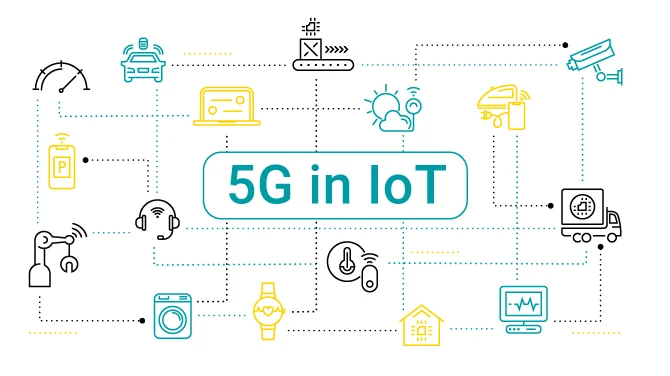The advent of 5G technology marks a monumental shift in how devices connect, communicate, and operate within the Internet of Things (IoT). This advanced wireless technology isn’t just an improvement, it’s a huge advancement that promises to supercharge IoT applications in many areas. From smart homes and healthcare to urban infrastructure, 5G stands to enhance connectivity, efficiency, and functionality in ways previously unimaginable. With its ability to handle massive data volumes at lightning speeds, 5G is setting the stage for innovations that will transform everyday life.
Revolutionising Smart Homes with 5G
In the realm of smart homes, 5G technology introduces unparalleled speed and reliability. It transforms how devices interact and respond. Imagine a home where Philips Hue lights, Samsung SmartThings, and Google Nest devices communicate seamlessly, with near-zero latency. This improved communication means that the actions you take, like adjusting the thermostat or setting security systems, happen almost instantaneously, even when you’re not at home.
The introduction of 5G networks facilitates the deployment of more sophisticated systems, such as high-definition security cameras that stream footage without buffering, enhancing home security. Its connectivity allows homeowners to engage in activities that require high bandwidth and low latency, such as interacting with Siri, chatting with friends on WhatsApp, watching films and series on Netflix and engaging in live casino games all simultaneously without compromising performance.
Enhancing Healthcare and Wellness Through Connectivity
The impact of 5G on healthcare is profound. It offers new possibilities for remote monitoring and telemedicine. With devices capable of transmitting large volumes of data at high speeds, patient care becomes more immediate and personalised. Wearables like the Fitbit and Apple Watch are at the forefront, collecting health data in real-time and transmitting it securely to healthcare providers.
This capability allows for more timely interventions and personalised care plans. 5G also enables the remote operation of medical equipment, facilitating procedures from afar.
Companies such as Medtronic and Siemens Healthineers are exploring these avenues. They develop devices that leverage 5G for more precise and efficient patient care. 5G paves the way for instant access to cloud-based healthcare services, enhancing patient care through faster, more reliable data analysis.
Transforming Urban Infrastructure
5G technology is ushering in a new era of connectivity for the Internet of Things (IoT), transforming urban infrastructure and enhancing city management. Traffic management systems, empowered by 5G, can instantly analyse data from an extensive network of IoT sensors and cameras, effectively reducing congestion and increasing road safety. For instance, Cisco’s integration of 5G with their smart city solutions optimises traffic flows in real time, greatly minimising commute times in urban areas.
5G enhances public safety networks, allowing first responders to swiftly access and exchange important information. This rapid communication is essential during emergencies, improving response coordination. Companies like Siemens leverage 5G in their smart infrastructure technologies to facilitate faster, more reliable communication across various public sectors, ensuring organised and efficient reactions in critical situations.
The implementation of 5G within IoT frameworks not only supports critical urban functions but also marks a significant advancement in the capacity for managing and improving complex city environments.






